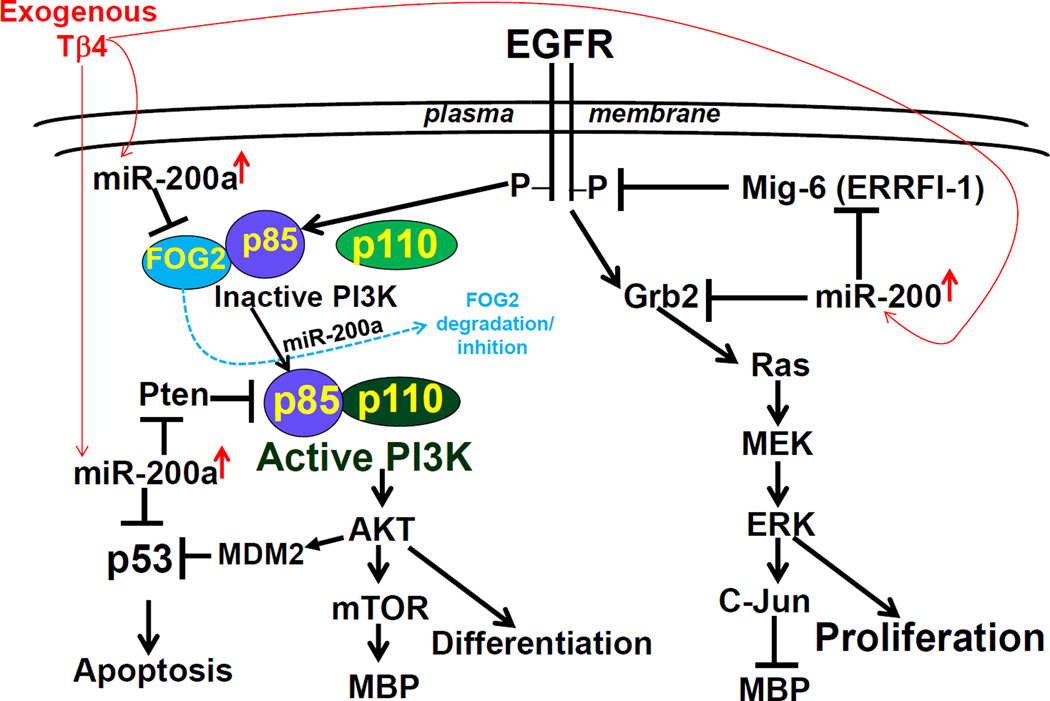Fig. 7. A summarizing schematic diagram of mechanistic cascades for Tβ4-induced OPC differentiation and inhibition of OGD-mediated apoptosis in novel miR-200-regulated EGFR signaling pathways.
Exogenous Tβ4 administration up-regulated miR-200a which targeted Grb2, blocked proliferating signal (EGFR/Grb2/ERK1), and thereby induced OPC differentiation by increasing MBP (a marker of OPC differentiation) synthesis. Tβ4-induced up-regulation of miR-200a targeted endogenous inhibitors of EGFR signaling, e.g. Mig-6 for EGFR and, FOG-2 and Pten for PI3K. As a result, AKT was markedly activated. AKT activation usually induces 1) cell survival, 2) OPC differentiation via AKT/mTOR/MBP, and 3) inhibition of apoptosis via MDM2-mediated p53 degradation. Tβ4-induced miR-200a directly targeted P53, reduced p53 synthesis and inhibited P53-mediated apoptosis. Protection of progenitor cells from OGD-mediated apoptosis may contribute the therapeutic benefits of Tβ4 and miR-200 for stroke and other neuronal diseases associated with demyelination disorders.

